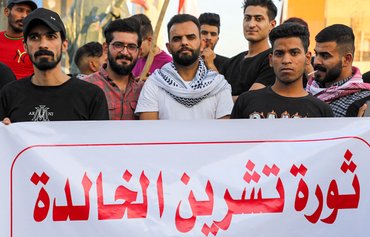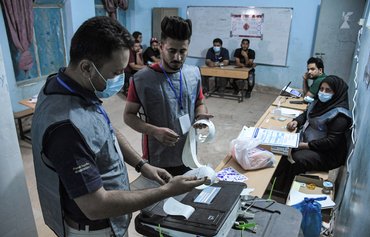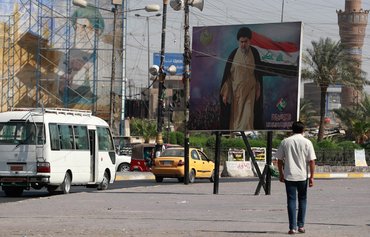Iraqis who spoke with Diyaruna expressed hope that the upcoming parliamentary elections will alter the political map in their country by curtailing the influence of Iran-linked parties.
The mass demonstrations that erupted in October of last year over government corruption and the actions of militias have sparked widespread popular anger that might translate into election losses for these factions, they said.
In his address to the nation on October 24th, Iraqi Prime Minister Mustafa Kadhemi said parliamentary elections set for June 2021, brought forward partly in response to protestors' demands, would go ahead, AFP reported.
Iraq's parliament is stacked with pro-Iran blocs resistant to tangible political reforms, as debate on a new electoral law is held up.
Iraq's top Shia cleric Grand Ayatollah Ali al-Sistani supported the early elections, and has encouraged Iraqis to participate widely in them.
He warned that delaying elections or holding them without providing the necessary conditions to ensure their success "would deepen the country's problems".
Challenge to state authority
The demonstrations revealed that Iran-linked parties and militias "do not have any popular support", said Abdul Rahman al-Mashhadani, who teaches economic relations at Al-Iraqia University.
Popular anger is mounting over the violations committed by these groups, he told Diyaruna, "and this could lead to a decline in the fortunes of parties allied with Iran in terms of achieving representation in the political process".
A shift in Iraq's political landscape also is contingent upon the provision of "a safe environment for the electorate that is free from the influence of armed groups", al-Mashhadani said.
This presents a major challenge to the government, he noted, as Iran-backed groups armed with illegal weapons "will not shy away from doing anything to preserve their interests".
"The power of political money and weapons possessed by Iran-affiliated groups poses a serious threat," political affairs researcher and military expert Ayad al-Tufan told Diyaruna.
"These groups could use their clout to influence the electoral process, as they did in the 2018 elections," he said.
Through their actions, they have constantly sought to undermine the force of law, diminish the role of security services and official institutions and harm the security and interests of Iraqis, he said.
They also threaten Iraq's civil peace, he said, pointing to the recent torching of the Kurdish Democratic Party headquarters in Baghdad, after party leader Hoshyar Zebari demanded that militias be expelled from the Green Zone.
The militias will "not easily give up the political cover that allows them to intervene in the national decision-making process and protect their influence that aims to serve the Iranian project", al-Tufan said.
He warned that they may attempt to disrupt the security situation ahead of the elections.
'New political process'
Groups loyal to Iran, including Asaib Ahl al-Haq led by Qais al-Khazaali and the Badr Organisation, are now part of al-Fateh Alliance, a parliamentary coalition.
These groups will wield their influence to "ensure they have a strong presence in the next parliament", security expert Majid al-Qaisi told Diyaruna.
They have started preparing for the elections "by recycling their military leaders as political leaders", he said, but despite this, the number of parliamentary seats held by the militias may decline from 47 seats to 10 or 12 seats.
For this to happen, he said, the state must implement measures to restrict the possession of weapons, enact a clear and fair election law, and most importantly, complete the quorum of the Federal Court.
Popular momentum which rejects the hegemony of the militias will be of key importance in producing a new political and democratic process in Iraq, he said.

![An Iraqi casts his vote in the legislative elections of May 12th, 2018. [Photo courtesy of the Iraqi government]](/cnmi_di/images/2020/10/29/26712-Iraq-election-vote-600_384.jpg)






